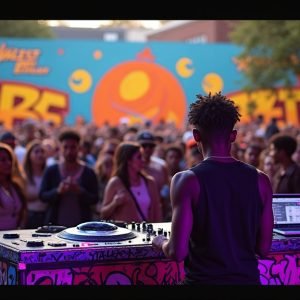Guilty Verdict on Prostitution Charges in Manhattan Federal Court
Sean “Diddy” Combs was found guilty on two counts of transportation to engage in prostitution on July 2, 2025, in a landmark verdict delivered at Manhattan federal court. The conviction marks a significant turning point in the high-profile case that has captivated the music and entertainment industries. The jury, after deliberations, reached its decision, impacting the career of the influential hip hop mogul.
Acquitted of Major Charges: Sex Trafficking and RICO
While the jury found Combs guilty on the transportation counts, they acquitted him of more severe charges, including racketeering conspiracy and sex trafficking. These acquittals represent a partial victory for the defense, which had vehemently contested the entirety of the prosecution’s case. The prosecution had sought a substantial prison term for Combs, arguing for severe penalties based on the full scope of allegations presented throughout the trial. The jury’s decision to acquit on the most serious charges may influence sentencing considerations for the lesser convictions.
Defense Cites Unique Circumstances, Seeks Bail
Following the verdict, Combs’ legal team immediately moved for bail pending his sentencing, scheduled for October. Their argument for bail cited what they described as “unique circumstances of the conviction.” The defense team emphasized that the specific nature of the prostitution-related convictions warranted a different approach to pre-sentencing release. They are expected to present further arguments regarding Combs’ specific situation and his contributions to the hip hop community, including his extensive album release history and philanthropic efforts, in their bid to keep him out of custody before sentencing.
Motion Filed to Vacate Verdict or Order New Trial
In a strategic move, the defense also filed a motion to vacate the verdict or, in the alternative, to order a new trial. The legal team asserted that the conviction on the prostitution-related counts was the result of severe prejudice stemming from evidence presented by the prosecution related to the acquitted charges. They contend that the jury was improperly influenced by the more sensational allegations, which, while not proven beyond a reasonable doubt for conviction, tainted the proceedings and compromised the fairness of the verdict on the counts for which Combs was found guilty. This legal maneuver indicates the defense’s intent to continue challenging the outcome of the trial vigorously.
Prosecution’s Allegations: Coercion and Filming
During the trial, prosecutors laid out a detailed case, accusing Combs of coercing and forcing ex-girlfriends to engage in sexual encounters with male sex workers. A key element of the prosecution’s evidence reportedly included allegations that Combs filmed these encounters. The prosecution argued that these actions constituted a pattern of abuse and exploitation, forming the basis for the racketeering conspiracy and sex trafficking charges, as well as the prostitution-related counts. The graphic nature of these allegations was central to the prosecution’s narrative.
Defense Counter-Argument: Voluntary Participation and Lifestyle Choices
Conversely, the defense team presented a starkly different narrative. They contended that the individuals involved chose to travel and engage in these encounters voluntarily. The defense argued that Combs was merely participating in a “swingers” lifestyle, suggesting that the alleged coercion and exploitation were misinterpretations of consensual arrangements. This defense strategy aimed to reframe the actions as consensual adult activities rather than criminal exploitation, directly contradicting the prosecution’s claims and painting a picture of mutual participation rather than forced involvement. The outcome of the jury’s deliberation on these contrasting narratives has now been rendered, with the verdict reflecting a complex interpretation of the evidence presented.
























